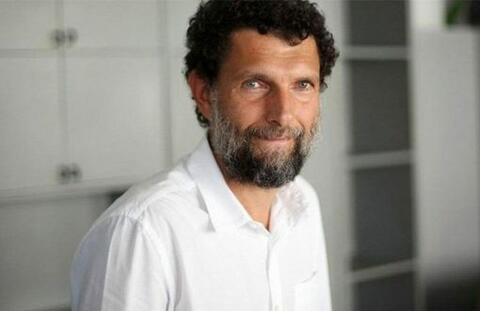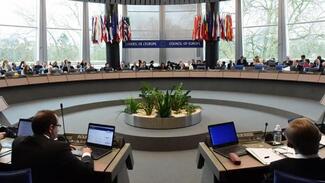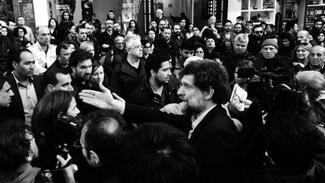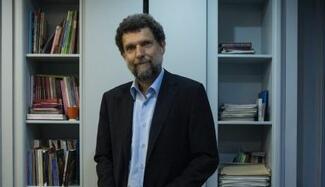
The Council of Europe’s Committee of Ministers, in charge of supervising implementation of European Court of Human Rights’s (ECtHR) judgments, urged Turkish authorities to immediately release businessman and rights defender Osman Kavala, imprisoned since 2017.
The Committee convened in Strasbourg on 1-3 September to review implementation of the European Court’s judgment on Kavala’s case in December 2019. In its decision on 3 September, the Committee said that “while taking note of the [Turkish] authorities’ submissions that since 9 March 2020 the applicant has been detained under a new detention order not examined by the European Court, [it] considered that the information available to the Committee raises a strong presumption that his current detention is a continuation of the violations found by the Court.”
The decision also noted that it had information that Turkey’s Constitutional Court an individual application filed on behalf of Kavala that is pending before the Constitutional Court has “promptly started to examine the applicant’s application. The Committee urged the authorities to “take all necessary measures to ensure that it is examined within the shortest possible timeframe and with full regard to the European Court’s findings in this case; urged them further, pending the Constitutional Court’s decision, to ensure the applicant’s immediate release.”
Given the urgency of the matter, the Committee will resume its examination of the measures required in Kavala’s case on 29 September – 1 October 2020.
Osman Kavala was arrested in October 2017 and imprisoned pending trial on 1 November. He was subsequently charged with “attempting to overthrow the government” along with 15 other civil society figures and journalists in what came to be known as the Gezi Park Trial. The European Court announced its judgment on Kavala’s application against his detention on 10 December 2019, ruling that there was not sufficient evidence to justify the detention and that there was an ulterior motive behind his detention, namely to silence him and human rights defenders more broadly. The decision became final in May 2020, after the European Court rejected a request from the Turkish authorities for the case to be referred to its Grand Chamber.
In the meantime, an Istanbul court ruled for the acquittal of Kavala and other defendants in the Gezi Park Trial and his release. Yet, he was rearrested on the basis of another investigation, this time in relation to the failed coup attempt of 15 July 2016. Kavala was subsequently jailed pending trial on charges of “military and political espionage,” although his lawyers said the alleged evidence in the case file consist of the same evidence relied on in the Gezi Park case. On 4 May 2020, Kavala's lawyers filed an individual application with the Constitutional Court complaining that there is insufficient evidence to justify his continuing detention and that the authorities have failed to implement the ECtHR’s judgment of December 2019.
Turkish authorities have told the Council of Europe that Turkey has complied with ECtHR’s December 2019 judgment since Kavala was already acquitted and released in the Gezi Park Trial and that his ongoing detention is part of a new case that was not yet examined by the European Court. The Committee of Ministers’ decision this week indicates the Council of Europe is not fully convinced.
"The Committee of Ministers' message to Turkey is very clear: we don't accept your argument that there are credible legal grounds for Osman Kavala's imprisonment. Release him now," Milena Buyum, Amnesty International's Turkey campaigner, wrote on Twitter. "Turkey has just one simple decision to make to comply with the Court's binding judgment - release Osman Kavala immediately and discontinue the criminal proceedings against him," she further said. "Anything less will be yet a further breach of Osman Kavala's human rights and yet another shameful stain on Turkey's flailing justice system."
Confrontation
İlkan Koyuncu, a lawyer for Kavala, said the Committee’s latest decision is part of an ongoing process between Turkey and the Council of Europe, where the 47-nation body presses member Turkey to comply with a judgment of the European Court.
“The European Court’s judgment for Kavala’s release has not been implemented and what we have now is a serious violation of the European Convention on Human Rights,” he told Expression Interrupted, insisting that he must be therefore released. “But what the government will think, how it will react, we will have to wait and see that.”
“The Council of Europe tells Turkey that ‘there is a clear judgment of the European Court and you have not implemented it,’” he said of the Committee of Ministers’ decision. “This is a process; we do not know what it involves, what the parties will risk, how long this confrontation will go on and how much more will Kavala have to suffer.”


